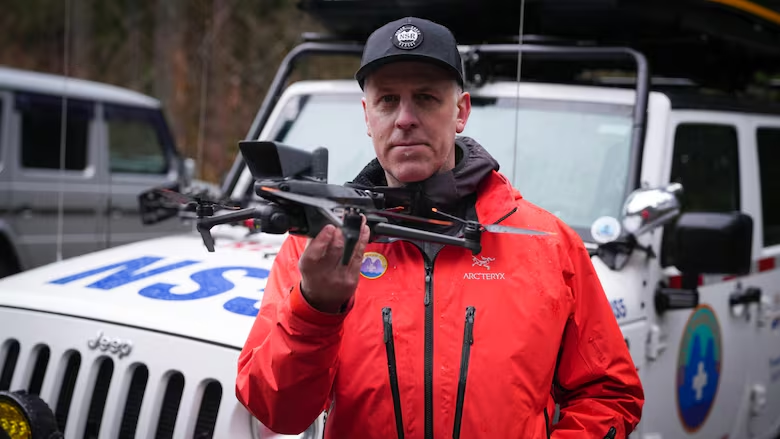Each year, thousands of outdoor enthusiasts flock to Vancouver’s stunning North Shore Mountains to hike, run, bike, or ski.
However, not every adventure goes as planned. More than 100 incidents annually require intervention from North Shore Rescue (NSR), Canada’s busiest volunteer search and rescue team.
Dense coastal rainforests, steep slopes, and unpredictable weather make these missions extremely challenging.
Now, the combination of AI technology and thermal drones is dramatically improving the efficiency and success rate of rescue efforts.
North Shore Rescue has embraced cutting-edge tools to locate lost or injured individuals more quickly and safely.
Grant Baldwin, a drone operator with NSR, highlights that individuals stand out brightly when viewed from 60 to 90 meters above using thermal imaging.
Drones equipped with infrared cameras scan large forested areas rapidly, detecting body heat even through thick foliage.
AI software further assists by analyzing the thermal images, distinguishing humans from animals or environmental heat signatures.
The integration of AI thermal drones into search and rescue missions means rescuers can prioritize areas where a person is most likely to be found.
This reduces the time volunteers spend searching in hazardous terrain and lowers the overall risk to both rescuers and the missing individuals.
Since introducing drones, NSR has reported faster response times and increased the number of successful rescues.
In life-threatening situations where minutes matter, the speed offered by AI-enhanced drone searches can be the difference between life and death.
Traditional ground searches in B.C.’s rugged terrain could take hours or days, but drones can survey vast areas in minutes.
Thermal drones have also proven invaluable during nighttime operations, when visibility is extremely limited.
North Shore Rescue’s embrace of technology reflects a growing trend across global search and rescue teams.
They aim to blend human expertise with technological innovation to achieve faster, safer, and more effective missions.
NSR continues to train its volunteers to operate drones under complex mountain and forest conditions, maximizing the new tools’ effectiveness.
This strategic adaptation showcases how technology can augment traditional skills, preserving the spirit of volunteerism while enhancing capabilities.
As the popularity of outdoor recreation grows, so does the demand for quick and effective rescue operations.
With AI and thermal drones leading the way, B.C.’s North Shore is setting a new standard in modern search and rescue excellence.
AI and Thermal Drones Revolutionize Search and Rescue Operations in B.C.’s Mountains



0 Comments